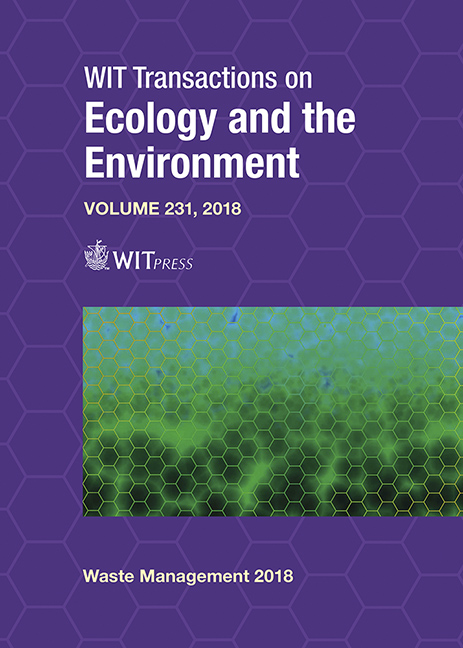ASSESSMENT OF ECO-EFFICIENCY OF SEPARATION OF SOME FRACTIONS OF MSW: A CASE STUDY OF GEORGIA, SOUTH CAUCASUS
Price
Free (open access)
Transaction
Volume
231
Pages
5
Page Range
59 - 63
Published
2019
Paper DOI
10.2495/WM180061
Copyright
WIT Press
Author(s)
NATELA L. DVALISHVILI
Abstract
Socio-economic development in Georgia is interconnected with the amount of municipal solid waste; in accordance with the statistical information of 2010–2017 it is 1.7% per year. The law on “Waste Management Code” was approved on January 15 2015, which regulates the waste management policy in Georgia, including separation activities and requirenments. During the last few years the first steps have been made towards the improvement of waste collection, disposal and landfill operations by municipality government, however the issue of waste minimization and decontamination still remains the challenge for the country. Based on the experimental databases of the morphological composition of MSW, which has been studied in 2015–2017, we estimated the amount of secondary use of some fractions of MSW, their impact on climate change and potential options for mitigating climate change. According to the data processing, and as a result of measures implemented in accordance with the national index of separation of MSW, 25% of whole MSW will be presented as a secondary raw material in 2030. Minimization of some fraction of MSW will cause reduction of methane emissions from SWDS of Georgia in 2020–2030, an average of 4.1%.
Keywords
waste management, municipal solid waste, separation, composition, greenhouse gases, inventory





